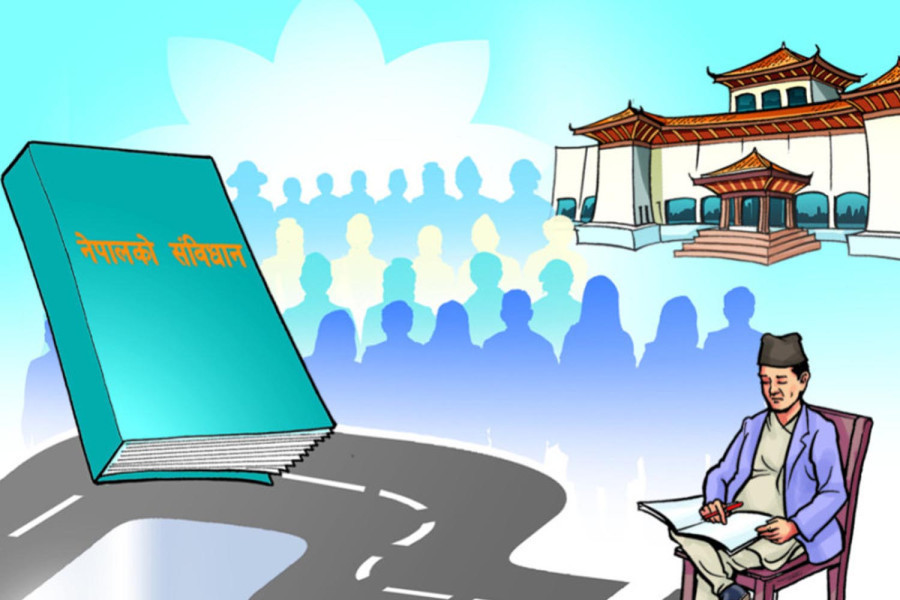Editorial
Old story
Formation of a new panel to study necessary laws to implement federalism inspires no hope.
Many may find a pair of recent decisions on constitution implementation and amendment in Nepal baffling. It was nearly five months ago that the country’s two largest political parties—the Nepali Congress and the CPN-UML—joined hands to form a coalition government, an unusual practice in a parliamentary system. They argued that the need for the constitution amendment made them forge an alliance as such a move would need a two-thirds parliamentary majority and a broad political understanding.
Months after the two forces crafted a coalition government with the promise to amend the constitution, a parliamentary committee formed a sub-panel to conduct a detailed study of the laws needed for full-fledged implementation of the constitution promulgated in September 2015. The Legislation Management Committee of the National Assembly has set up a five-member subcommittee to study how many laws still need to be enacted. An earlier study conducted by a similar panel under the leadership of lawmaker Anita Devkota had found that 40 laws need amendments or replacement to align with the constitution.
The earlier committee’s report, which was endorsed by the full committee in June last year, made several recommendations to the legislature and the government to update the laws in line with the constitution. But instead of doing so, the government and the parliament have either not drafted the bills or sat on several ones in the House. Now, the upper house has formed one more sub-committee.
The Congress-UML coalition floated the proposal of constitution amendment while without first doing even the basics to implement the constitution. They haven’t formulated laws to allow the provincial and local authorities to use the rights enshrined in the constitution. Chief ministers of the seven provinces have been continuously pressing top leaders in Kathmandu to make necessary laws. They argue that the provinces have failed in delivery mainly in the absence of their own police and civil servants. There are several other sectors where sub-national governments have failed to perform in the absence of necessary laws as required by the constitution.
This shows the hollowness of the political parties’ advocacy for constitution amendment. Really, how can a constitution’s performance be judged and amended without first fully implementing it? And, will the major political forces that didn’t even formulate laws needed for the full-fledged implementation of the statute in the past nine years suddenly start working to improve the national charter? So the problem lies in the honesty of the leaders. It’s no secret that top leaders of major parties—mainly the Congress and the UML—were not in favour of the federal system. They agreed to embrace it in the face of a wave of movement in favour of state restructuring that picked up during the eight-year-long constitution writing period.
While the Congress and the UML leaders accepted federalism reluctantly, CPN (Maoist Centre) chief Pushpa Kamal Dahal has often used federalism-related issues as a political tool. It was evident in the course of naming Koshi Province. While finalising the name, he first instructed Maoist lawmakers to vote in favour of naming the province ‘Koshi’ and later he provoked ethnic communities to keep fighting for an identity-based nomenclature. In sum, at the core of the problem lies the leaders’ reluctance to devolve the centralised powers to the sub-national authorities. Such confusion and contradiction will keep cropping up until the leaders are committed to formulating necessary laws and clearing the way to allow provincial and local authorities to exercise their constitutional rights.




 20.9°C Kathmandu
20.9°C Kathmandu














